Culture workers protest across Italy: too many institutions still closed, sector needs investment
Culture workers protest across Italy: too many institutions still closed, sector needs investment
Last Thursday, May 28, a widespread protest of culture and arts workers was held throughout Italy, launched by the association Mi Riconosci? I am a cultural heritage professional, and founded on a very eloquent slogan: “Without Culture, No Future.” It was a peaceful protest, civil and held in full compliance with anti-Covid rules: in fact, the protesters conducted their action with due distances and making use, where necessary, of personal protective equipment.
The uprising received adhesions all over Italy: the workers organized themselves autonomously in small groups taking photos with the symbol of the protest (a crossed out eye with the slogan “Without Culture, No Future”) or with actions or flash-mobs with the aim of denouncing the situation of neglect and disinterest that is affecting tens of thousands of cultural institutions and workers in the sector, crushed by increased burdens and impossibility of offering citizenship a service adequate to the needs of the territories. In fact, due to the emergency, many museums, libraries and archives still remain closed with no time horizon for reopening. It is estimated that still an estimated 80 percent of museums are closed, in addition libraries and archives are working at reduced ranks without being able to offer minimum services and adequate fruition.
According to Mi Riconosci activists, this is not a situation due to compliance with health and medical safety requirements: the regulations have yes increased the burden and costs of management, but not enough funds have come from the state to be able to meet the renewed needs, and severe staff shortages remain, preventing a full reopening of cultural venues.
“For months the Ministry has been insisting that ’culture doesn’t stop,’” says Alice Battistella, an art historian and tour guide in Venice, “but the truth is that thousands of cultural institutions have been at a standstill, for three months now, while all the others have suffered a violent slowdown in their activities. This has a very hard impact on society and communities, especially the weaker ones, who are deprived of their cultural spaces, and an equally hard impact on workers in the sector. Hundreds of thousands lost their jobs three months ago and see no perspective.”
“People think, or want to think, that the solution can be to offer online services for a fee,” says Carola Gatto, an IT activist and researcher. “It’s not. These are choices that aim to keep the industry still standing at maximum savings, seeking the reduction of services and personnel. And we say this with a protest that is also traveling on social media and to which thousands are joining. Without investment and planning, the realities that functioned well before the pandemic are in danger of closing, while those that need the most help may not reopen for long.”
Activists let it be known that the protest will continue in the coming days by collecting reports for a dossier that will be delivered to Cultural Heritage Minister Dario Franceschini and the government. “Depriving the country, from big cities to small towns, of the work of Culture professionals at such a delicate and difficult time,” the protesters concluded, “risks having very serious consequences for democracy and the fight against inequality.”
Below are some photos of the protest.
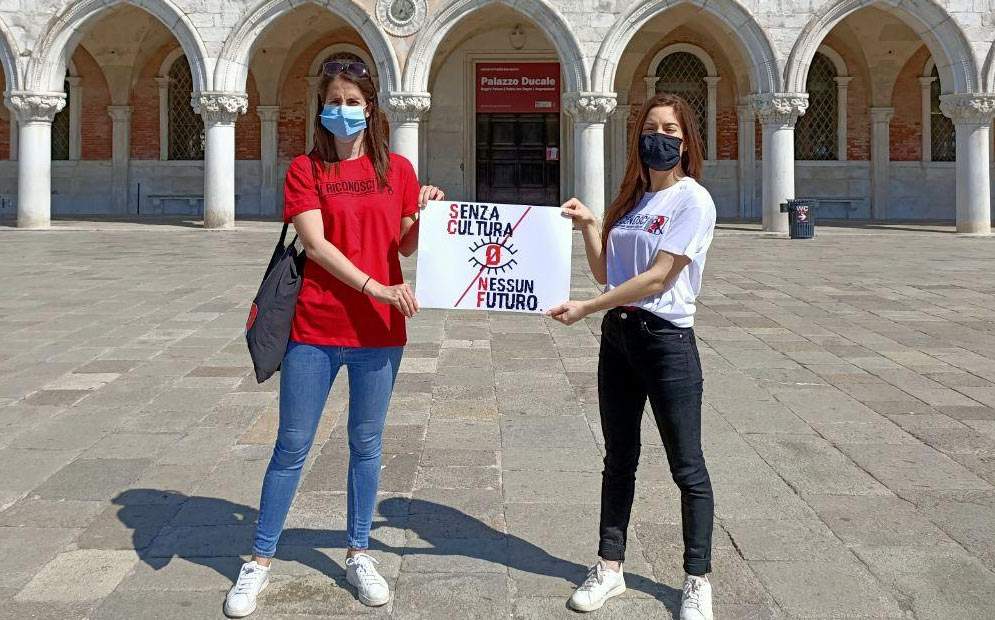 |
| Venice |
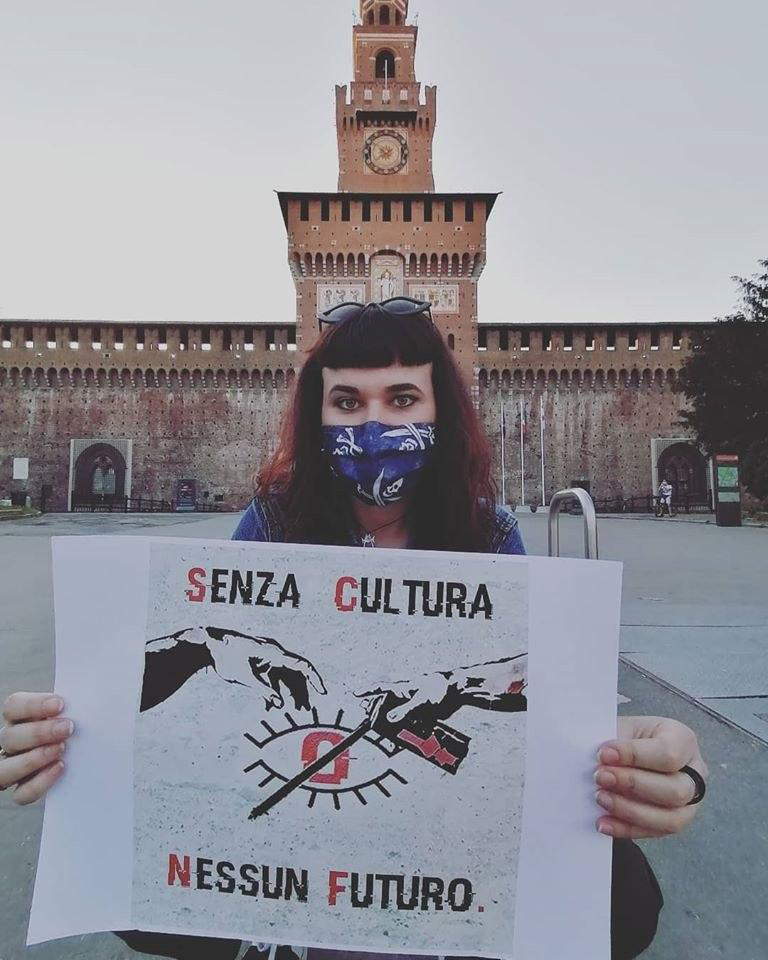 |
| Milan |
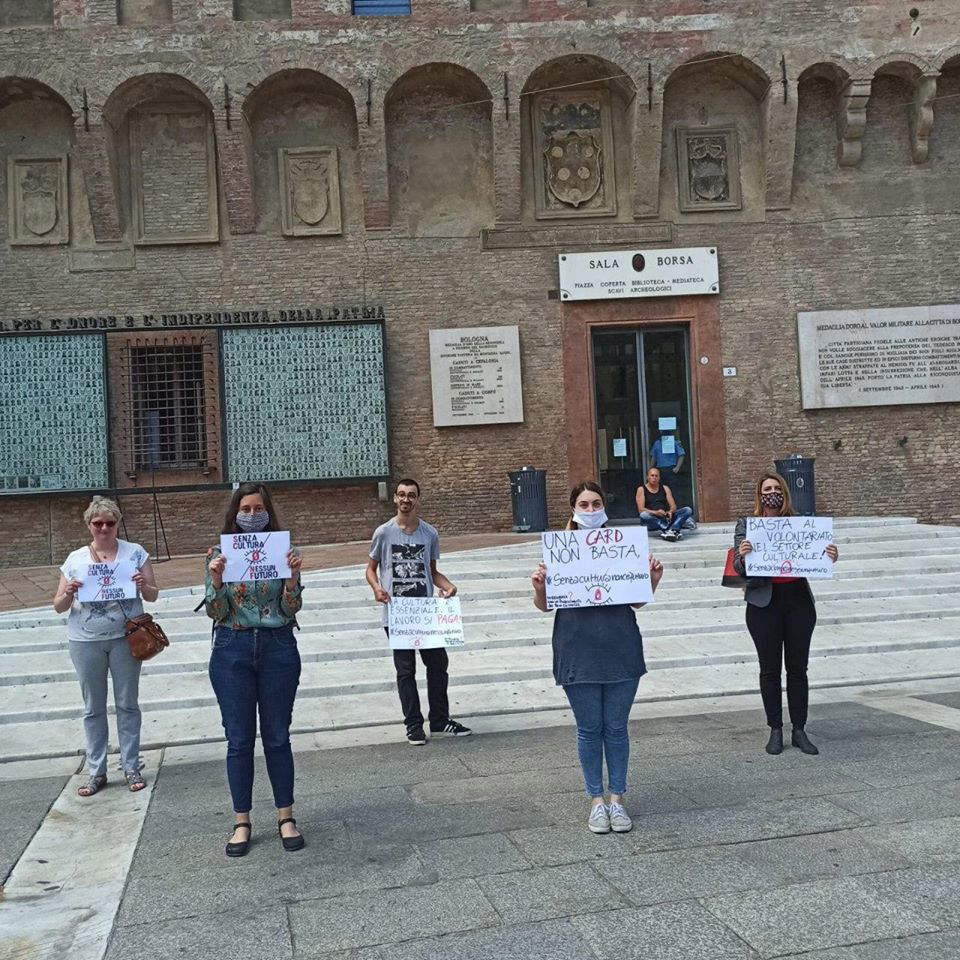 |
| Bologna |
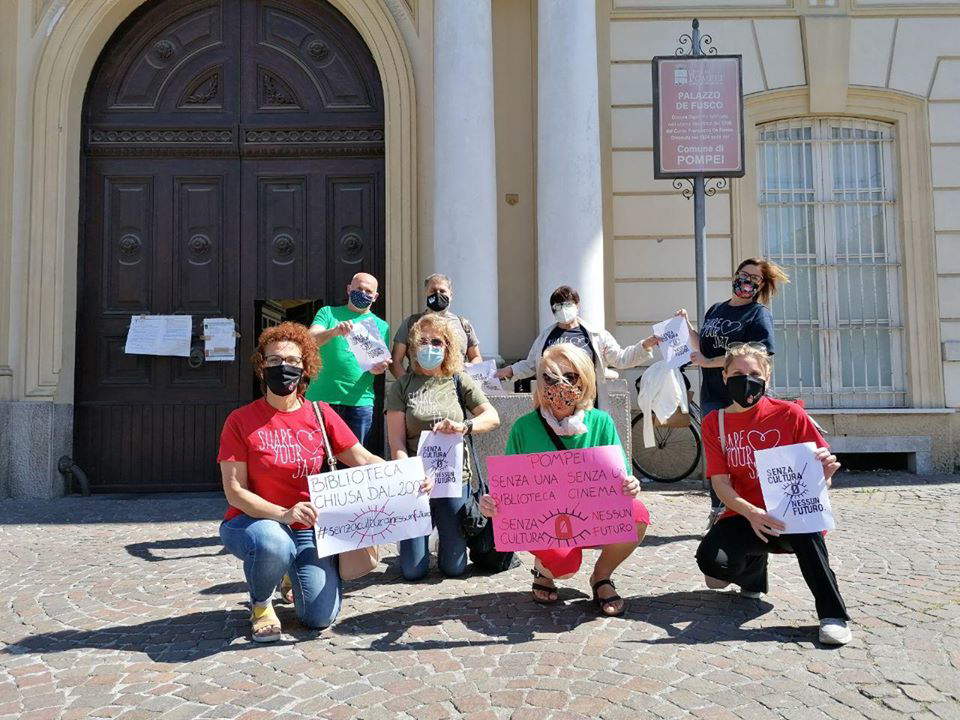 |
| Pompeiii |
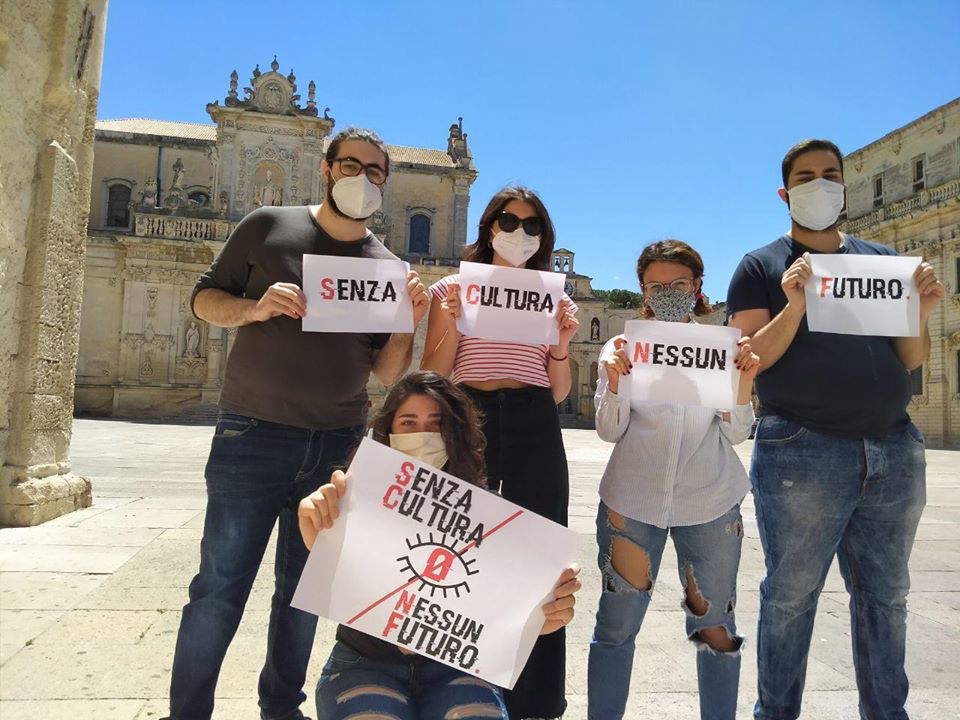 |
| Lecce |
 |
| Culture workers protest across Italy: too many institutions still closed, sector needs investment |
Warning: the translation into English of the original Italian article was created using automatic tools. We undertake to review all articles, but we do not guarantee the total absence of inaccuracies in the translation due to the program. You can find the original by clicking on the ITA button. If you find any mistake,please contact us.



























